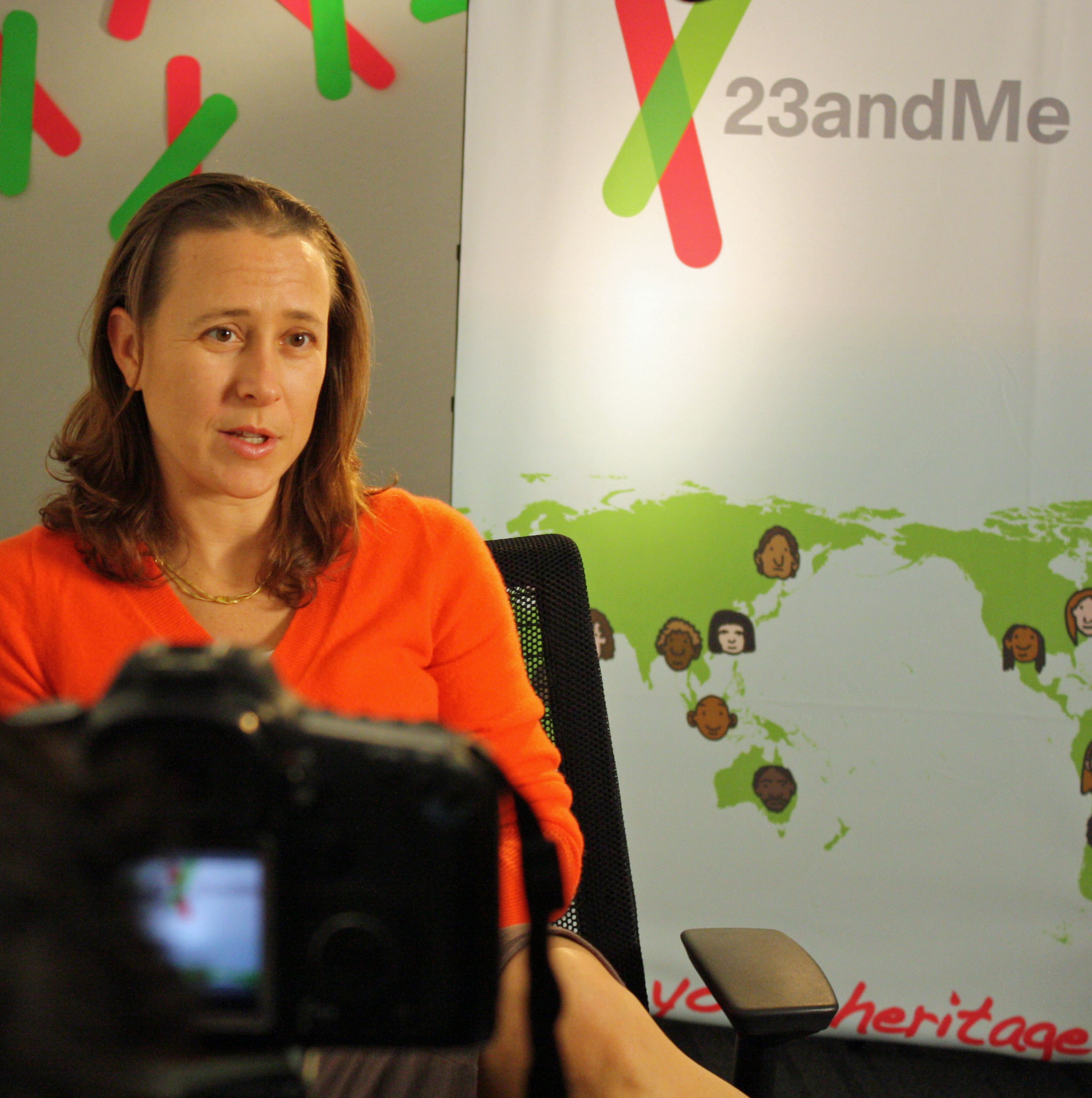23andMe executives want the credibility that FDA clearance provides for its DNA tests and declared their intent to eventually support more clinical laboratory test applications
Offering genetic tests directly to consumers is a controversial subject among some pathologists and healthcare ethics experts, who question both the science of these tests and whether consumers will do the right thing with the information.
Now that debate is likely to heat up, because direct-to-consumer genetic testing company 23andMe recently submitted an application to the Food & Drug Administration (FDA) to review and clear its personalized DNA test for market.
On July 30, 23andMe delivered its first round of 510(k) documentation to the FDA. This is a first for the direct-to-consumer genetic testing industry. At the same time, by seeking FDA clearance for its genetic tests, 23andMe will raise interesting issues for the traditional clinical laboratory testing profession.
Seeking the Credibility of FDA Review of Its Genetic Tests
There is another reason why the 23andMe’s decision to seek FDA clearance for its genetic tests is significant. It represents a change in the company’s attitude toward government regulation. In its story about this development, Associated Press reporter Matthew Perrone wrote “For years, the Silicon Valley company [23andMe] has resisted government regulation, arguing that it simply provides consumers with information, not a medical service. But now company executives say they are seeking government approval—and the scientific credibility that comes with it.”

It was a first for the direct-to-consumer genetic testing industry when 23andMe filed 510(k) applications with the Food & Drug Administration to get agency clearance for seven of its genetic tests. Pictured above is 23andMe co-founder Anne Wojcicki. (Photo by 23andMe.)
Many pathologists and clinical laboratory managers may not know that 23andMe was incubated and birthed in the Silicon Valley. It was started by individuals who champion the open exchange of information that has been fostered by the Internet. In fact, one co-founder of 23andMe is Anne Wojcicki. She happens to be married to Sergey Brin, who is co-founder of Google.
Thus, the decision by 23andMe to move forward with the FDA’s regulatory process may be a sign of resistance by both consumers and genetic testing experts because significant doubt has been voiced about the scientific accuracy and/or value of the genetic tests that it offers the public. To respond to these criticisms, the company is willing to invest the considerable money and time required to submit their genetic tests to the FDA for its review and permission to market the tests.
In its press release announcing the FDA filing, Wojcicki spoke to this point. “We believe our ongoing conversations with the FDA and ultimately securing clearance will be very important as we continue to serve our customers with genetic information that is an essential consideration in their personal health, and continue to grow our community, which is now more than 150,000 strong,” stated Wojcicki.
Moreover, executives at 23andMe seem to be crafting a strategy that will help them move into clinical care. Wojcicki was quoted in the press release as saying “FDA clearance is an important step on the path towards getting genetic information integrated with routine medical care,” declared Wojcicki. “As the knowledge around personalized medicine continues to grow, consumers should expect their healthcare providers to begin to incorporate genetic information into their treatments and preventative care.”
If this is true, then the medical laboratory testing profession may eventually have another lab competitor soliciting the genetic test referrals of office-based physicians. This may prove disrupting to existing pathology groups and clinical laboratories because 23andMe would likely want to build its sales and business development activities around the use of social media and Internet channels. In that sense, the company would be a very different competitor for traditional clinical laboratories.
More Than 150,000 Consumers Purchased Genetic Tests
Another important part of this story is that 23andMe seems to be tapping genuine consumer interest with its genetic testing services. It is reported that the company, since its founding in 2006, has provided DNA tests to 150,000 people at $299 per test. That represents almost $45 million in revenue. Many clinical laboratories would like to have a revenue flow of that magnitude.
23andMe plans to move expeditiously with its FDA filings. This initial filing covered seven health-related tests. The San Francisco Chronicle reported that the company plans to submit as many as 100 unique tests for FDA review and these filings will be made in coming months. It currently has 200 genetic tests that it offers consumers via its website.
Will this turn out to be a positive step for 23andMe? The San Francisco Chronicle quoted Stanford University law professor Hank Greely, who is expert in the areas of legal, ethical and social issues in bioscience. He believes consumers will be reassured by the FDA’s review of 23andMe’s genetic tests.
“I am heartened by the fact 23andMe seems to agree with that [FDA review process],” stated Greely, who added that “The one thing that’s clear is 23andMe, despite its past, is now saying ‘yes, there’s a role for regulation.’ What’s not clear is if 23andMe’s idea how to regulate this stuff is the same as the FDA’s.”
Dark Daily observes that, by being the first direct-to-consumer genetic test company to undertake 510(k) filings with the FDA, 23andMe is attempting to raise the bar on the competitive marketplace. In addition, its stated intent to expand into the clinical arena and offer its genetic tests as a supplement to the consumer’s healthcare means that it may evolve into a credible competitor for more traditional clinical laboratory testing companies.
Related Information:
23andMe Takes First Step Toward FDA Clearance
Genetic testing company 23andMe seeks credibility boost with FDA application



